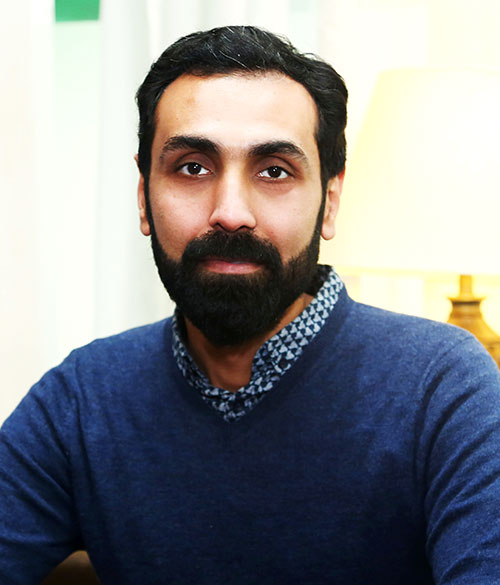Author: Dr Hassan Imam, Kyoto University, Japan

The US began to record public trust formally as part of the National Election Study in 1958 to gauge the extent to which people were voluntarily complying with government policies. Back then, they found that three-in-four people trusted the government. But now, when the need for trust at all levels of society is paramount, people’s trust in corporate business and the government is lower than ever.
The public health response during the pandemic is an example of noticeably depreciated trust in recent times. The "Great Resignation" provides evidence that employees have lost trust in businesses to provide secure, meaningful, and stress-free employment. The public response to the vaccine and involuntary layoffs led governments and businesses to seek ways of reconstructing trust relationships.
The UN’s Sustainable Development Agenda also revolves around trust to end inequality, green the planet, and improve the lives and prospects of everyone, everywhere. Therefore, serious work by businesses and governments around the globe is not only important for one country or region but contributes significantly to achieving the sustainable development agenda.
The role of government in improving trust
Increasing citizens’ inclusion is one of the crucial steps that a government can take toward recovering public trust. This means addressing the extent to which citizens can choose their political leaders, exercise their human rights, and understand their leaders’ decision-making processes. Increasing inclusion in these ways increases trust in the government and helps society by boosting participation in political activities. Improving the quality of public and civil services, maintaining commitment to stated policies, and the absence of political instability are all major facets of improving public trust. To regain public trust, governments must take a holistic approach to policymaking to reduce social and labour market inequalities rather than focusing on policies that deliver short-term political benefits.
Rebuilding political trust is a long-term project that must be addressed on multiple levels from the top of the political ladder to the local community level. The OECD has identified four main behaviours for governments aiming at restoring trust: they must be reliable, responsive, transparent, and inclusive, and they should work with integrity. These goals are not achievable by the government alone and require some degree of communal participation to repair the damage done by the previous distrust.
The role of organisations in improving trust
Studies show that countries that rank high in public trust also rank high in economic equality (1). This correlation between trust and equality is evident in organisations, and trust in organisations also reflects on society since each person is a part of some organisation. The benefits of improved equality and diversity are numerous; when people trust others, they tend to have a more optimistic view of their society and are more active in politics and civic organisations. Trusting people are also more tolerant towards minorities and people of different backgrounds; they also tend to be more charitable. This pattern reflects at the societal level, and societies with more trusting people tend to have better working conditions.
A simple measure of trust in society, to ensure the success of a wide range of public policies, depends on behavioural responses from the public.
organisations can also improve trust by adopting measures to help improve employees’ well-being and psychological health. They may increase employee involvement, recognition, health and safety, and help them to achieve a better work-life balance (2). This ensures that their employees have a more positive outlook on life and therefore reflect this in their dealings outside the organisation. Lastly, in this era of improved environmental awareness, organisations should endeavour to be more sustainable. This strategy has helped to improve people’s trust in some large organisations. Such simple sustainability measures as recycling, water conservation, and the use of non-toxic and biodegradable products can make employees proud of being part of an organisation. This improved trust directly impacts society.
Conclusion
When the government fails to live up to standards such as transparency, accountability, competency, reliability and upholding the rule of law, philanthropists, business leaders, and NGOs find ways to circumvent the problems. They establish their own analogous service delivery system – NGO programmes, private schools, health centres, and so on. But these schemes are dependent on external contributions and rarely reach their full potential due to lack of funds or improper strategic planning.
Regaining public trust requires a strong commitment to integrity by the government, coordination, innovation, shared responsibility, and accountability, as well as ethical leadership at all levels. If the above requirements are met, there will be a significant increase in the people’s trust in political and business leadership. This will, in turn, lead to a society where there is prosperity, a reduced crime rate, increased participation in public programs, and a willingness to sacrifice personal interests for the greater good. In all, increased trust in the political and business leaders will lead to a society that is more open, inclusive, reliable, and fair to all.
References
- Rothstein, B., & Uslaner, E. M. (2005). All for all: Equality, corruption, and social trust. World politics, 58(1), 41-72.
- Arnett, T. (2017). Five Steps to a Psychologically Healthy Workplace. ASAE (The Center for Association Leadership).
Dr Imam is co-author (alongside Farhan Sarwar, Hafiz Tahir Jameel, Siti Aisyah Panatik, Donald E. Brannen) of Unravelling the relationship between trust in government and voluntary adoption of preventative behaviour through health belief model: a cross-culture study in the journal, Kybernetes.

Fairer society
We are passionate about working with researchers globally to deliver a fairer, more inclusive society. This perhaps has never been more important than in today’s divided world.
